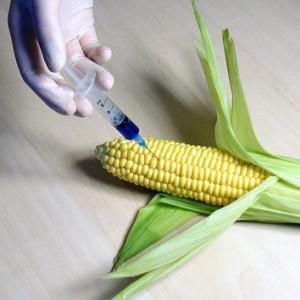 October is GMO awareness month. GMOs are genetically modified foods and are now in most processed foods. According to Grist.org, “80 percent of packaged foods in this country contain genetically engineered ingredients.” The main crops that are GMO in the U.S. are soy, corn, cotton and canola. These are all common items we consume and use each day.
October is GMO awareness month. GMOs are genetically modified foods and are now in most processed foods. According to Grist.org, “80 percent of packaged foods in this country contain genetically engineered ingredients.” The main crops that are GMO in the U.S. are soy, corn, cotton and canola. These are all common items we consume and use each day.
But let’s not get ahead of ourselves here. What does this have to do with sustainability and what are GMOs?
Genetically modified foods have been genetically modified in a lab setting. The DNA of the organism is spliced and swapped out for “better” genes. This is designed to create stronger, more resistant, and more productive plants. Some organizations argue these benefits of GMOs will feed the world’s growing population.
The jury is still out on GMOs and if they are safe for our health and the environment. This means, consuming these modified crops could be proven to cause yet another disease or cancer down the line. Currently there is speculation that GMOs are causing more food allergies. Also, their impact on the environment is being debated. Some GMOs have genes that already contain insecticides, such as BT Corn. Now science is showing insects are becoming resistant to this insecticide. This can cause major environmental and agricultural sustainability issues if we start creating ‘super’ bugs that are resistant to all methods of control. Other issues are increased chemical usage needed for GMO crops, which leads to increased pollution in water run-off; cross-contamination with non-GMO crops, which can led lead to an decrease in biodiversity; and an opening for new plant pathogens to develop. GMOs are even extending beyond the common crops and moving onto animals such as salmon.
All of these issues propose serious problems to our food sustainability, especially when the world population is about to reach 7 billion. We cannot afford to have ‘super’ bugs that wipe out our corn crops, or even more water pollution. We are already wearing the environment down. How much more damage can it take?
So what can you do about GMOs?
- Buy organic foods, which cannot contain GMO ingredients by law. Or look for labeling that specifics the ingredients are non-GMO.
- Contact your senator about getting labeling mandates on GMO products. Currently in the U.S., companies are not required to label if food is GMO or non-GMO, unlike the EU.
- Check out the World Health Organization’s 20 questions on GMO foods to get more details on GMOs.
- Check out Slow Foods: 10 Reasons to say no to GMO
[Image source]
Megan Stilley is currently a Environmental Science graduate student at University of Colorado-Denver. Her main interests are in food systems and agricultural sustainability. She is currently researching food deserts in Denver County for her thesis.

